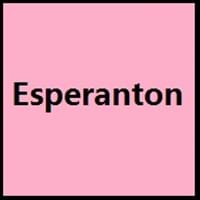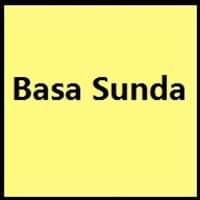Esperanto and Sundanese
Countries
East Asia, European Union, South America
West Java
National Language
East Asia, European Union
Indonesia
Second Language
Central Europe, East Asia, Eastern Europe, South America
Not spoken in any of the countries
Speaking Continents
Asia, Europe, South America
Asia
Minority Language
Not spoken in any of the countries
Not spoken in any of the countries
Regulated By
Akademio de Esperanto
Not Available
Interesting Facts
- The most widely spoken constructed language in the world is Esperanto.
- Esperanto is an artificial international language.
- The Sundanese language is second most widely spoken regional language in Indonesia.
Similar To
Not Available
Madurese and Malay Languages
Derived From
Not Available
Not Available
Alphabets in
Esperanto-Alphabets.jpg#200
Sundanese-Alphabets.jpg#200
Scripts
Latin
Latin, Sundanese
Writing Direction
Not Available
Left-To-Right, Horizontal
Language Levels
Not Available
Time Taken to Learn
Not Available
How Are You?
Kiel vi sanas?
Kumaha kabarna?
Good Night
Bonan nokton
Wilujeng kulem
Good Evening
Bonan vesperon
Wilujeng wengi
Good Afternoon
Bonan posttagmezon
Wilujeng siang
Good Morning
Bonan matenon
Wilujeng énjing
Sorry
Mi bedaŭras!
Hapunten
Bye
Ĝis poste
Wilujeng angkat
I Love You
Mi amas vin
Abdi bogoh ka anjeun
Excuse Me
Pardonu!
Punten
Dialect 1
Not present
Western dialect
Where They Speak
Not present
Banten
Dialect 2
Not present
Northern dialect
Where They Speak
Not present
Bogor
Dialect 3
Not present
Priangan dialect
Where They Speak
Not present
Bandung
Speaking Population
Not Available
Second Language Speakers
Not Available
Native Name
Esperanto
Not Available
Alternative Names
Eo, La Lingvo Internacia
Priangan, Sunda
French Name
espéranto
soundanais
German Name
Esperanto
Sundanesisch
Pronunciation
[espeˈranto]
Not Available
Ethnicity
Not Available
Sundanese, Bantenese, Cirebonese, Badui
Origin
1887
5th century AD
Language Family
Indo-European Family
Austronesian Family
Subgroup
Not Available
Indonesian
Branch
Not Available
Not Available
Early Forms
Proto-Esperanto
No early forms
Standard Forms
Esperanto
Sundanese
Signed Forms
Signuno
Not Available
Scope
Individual
Individual
ISO 639 6
Not Available
Not Available
Glottocode
espe1235
sund1251
Linguasphere
51-AAB-da
No data available
Language Type
Constructed
Living
Language Linguistic Typology
Not Available
Subject-Verb-Object
Language Morphological Typology
Agglutinative
Not Available
All Esperanto and Sundanese Dialects
Most languages have dialects where each dialect differ from other dialect with respect to grammar and vocabulary. Here you will get to know all Esperanto and Sundanese dialects. Various dialects of Esperanto and Sundanese language differ in their pronunciations and words. Dialects of Esperanto are spoken in different Esperanto Speaking Countries whereas Sundanese Dialects are spoken in different Sundanese speaking countries. Also the number of people speaking Esperanto vs Sundanese Dialects varies from few thousands to many millions. Sundanese dialects include: Western dialect , Northern dialect. Also learn about dialects in South American Languages and North American Languages.
Esperanto and Sundanese Speaking population
Esperanto and Sundanese speaking population is one of the factors based on which Esperanto and Sundanese languages can be compared. The total count of Esperanto and Sundanese Speaking population in percentage is also given. The percentage of people speaking Esperanto language is Not Available whereas the percentage of people speaking Sundanese language is 0.57 %. When we compare the speaking population of any two languages we get to know which of two languages is more popular. Find more details about how many people speak Esperanto and Sundanese on Esperanto vs Sundanese where you will get native speakers, speaking population in percentage and native names.
Esperanto and Sundanese Language Codes
Esperanto and Sundanese language codes are used in those applications where using language names are tedious. Esperanto and Sundanese Language Codes include all the international language codes, glottocodes and linguasphere.





